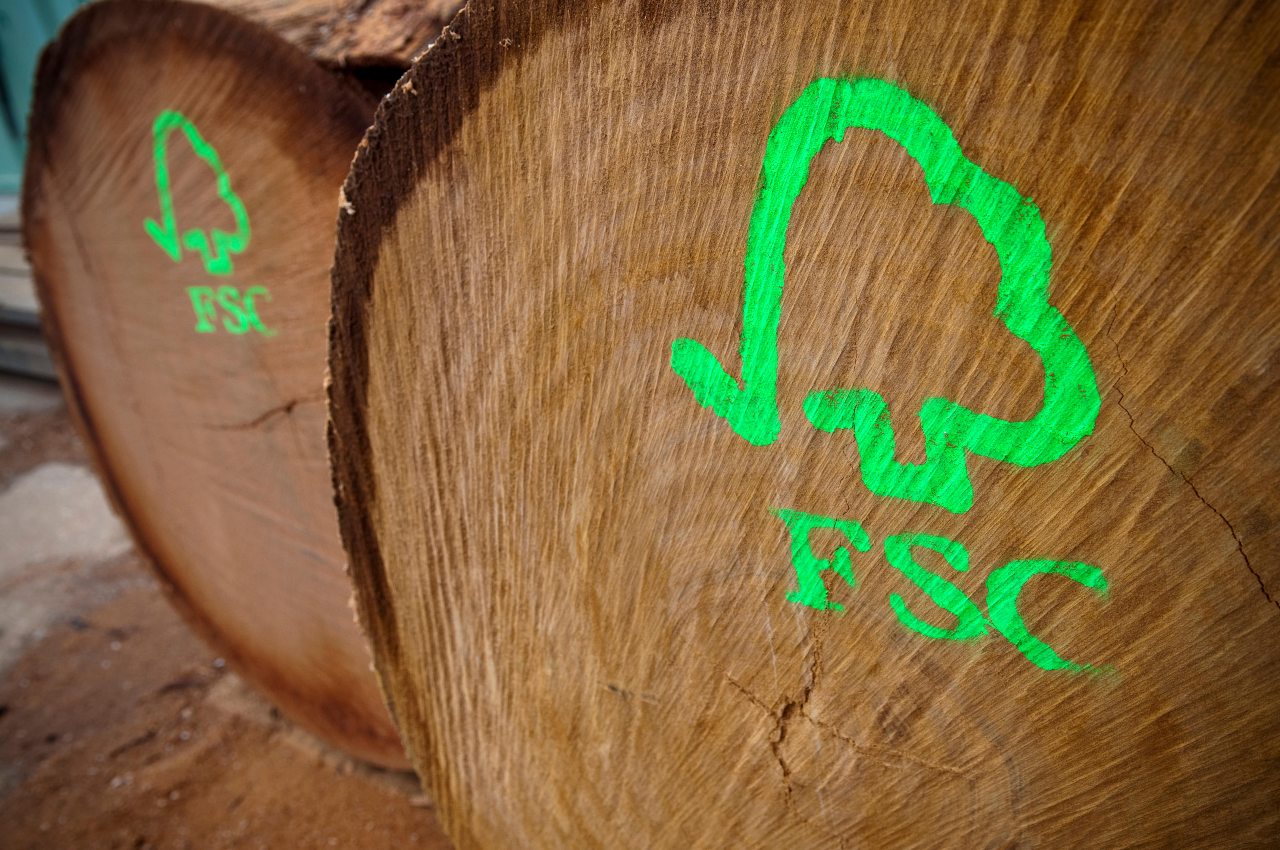Open letter signed by environmental and civil society organisations accuses the Forest Stewardship Council of failing to protect forests and indigenous groups

The FSC’s tree-tick logo, which adorns household goods around the globe, is meant to tell shoppers the products come from legal and sustainable sources.
London, 25 October 2021 – Environmental and civil society
groups today publish an open letter accusing the world’s leading green
certification body of failing to protect forests and indigenous groups.
In the letter, non-profit organisations representing
millions of members worldwide urge the Forest Stewardship Council (FSC) to
commit to “immediate” reforms to help fight global deforestation.
The FSC’s tree-tick logo, which adorns household goods
around the globe, is meant to tell shoppers the products come from legal and
sustainable sources.
But deep-rooted flaws have embroiled the ethical wood label
in environmental and human rights abuses, leading some of its early advocates
like Greenpeace to part ways with the scheme.
In the last few months alone, the FSC has been accused of failing
to spot illegal logging in protected forests crucial to Earth’s climate, allowing
vast volumes of suspect wood to be laundered through its supply chains in China,
and lobbying
to weaken draft EU rules aimed at protecting biodiversity.
“No system is completely free from issues,” write the
authors, which include Earthsight, Greenpeace and Fern. “But for the number of
failures to have occurred, it means FSC’s weaknesses are systemic.”
The letter’s release coincides with the start of the four-day
FSC General Assembly gathering of loggers, timber traders, big-name retail
brands, indigenous peoples’ organisations, environmentalists and NGOs on Monday.
World leaders attending the COP26 UN climate summit next
month are also expected to debate ambitious goals to end deforestation, the
leading cause of climate change after burning fossil fuels. Clearing forests not
only releases vast quantities of carbon dioxide stored in trees but threatens
local and indigenous communities.
The NGOs call on the Bonn-based FSC to increase transparency
over its actions, remove conflicts of interest and take a tougher stance on
companies caught flouting its rules.
“FSC could be a powerful tool to protect and help restore
the world’s forests and has had beneficial effects in some regions,” they add. “However,
we share urgent and serious concerns over its failure to transform in response
to the challenges forests face in the 21st century, and believe it is
increasingly serving to undermine rather than support its own stated goals.”
The four-page letter also pins the blame on forest industry
representatives on the FSC board for stymying reforms aimed at protecting
indigenous peoples and the planet.
It warns board members the FSC faces a “crossroads” and that
being the ‘least worst’ ethical wood label on the market means little in a
climate crisis.
Earthsight director Sam Lawson said: “The many scandals involving FSC-certified firms are not ‘bad apples’. They involve some of the world’s largest logging firms, timber processors and wood retailers. And the same underlying causes appear time and again. “Yet FSC has proven incapable of acknowledging its problems, and is rapidly running out of time to fix them.”
Alexey Yaroshenko, head of Greenpeace Russia’s forest
department, said: “Thirty years ago, we had very high hopes for the FSC –
we hoped that certification would be the driving force behind forest
perestroika, the transition from harvesting the last forest wildernesses to
good forestry.
“But, unfortunately, over the past thirty years, forest
problems have only grown, certified use of forests differs little from
uncertified ones, and nice words about sustainability prop up an archaic model
of forest use that should have died out in the last century.”
Yehor Hrynyk, forestry expert at the Ukrainian Nature
Conservation Group, said: “There were dozens of reports and publications
about the FSC’s failures during the last 15 years. The FSC had plenty of time
to react and try to solve the problems. But they didn’t. Therefore, this letter
must be the last one.
“If the FSC fails to react, environmentalists should forget the FSC like a nightmare and focus on more progressive approaches to the conservation of forests. If it doesn’t change now, the FSC is not worth more resources spent trying to improve it.”
Shin Young Chung, director of the Korean non-profit lawyers’
group Advocates for Public Interest Law, said: “Accepting requests from
NGOs all around the world will be a starting point for the FSC to address
critical issues that they have been facing. We have no time for tolerating
greenwashing.”
Trésor Nzila Kendet, executive director of Centre d’Actions
pour le Développement (CAD) and former director of the Congolese Human Rights
Observatory (OCDH), said: “The FSC raised much hope in the Congo Basin
countries as a mechanism additional to Voluntary Partnership Agreements to
fight illegal deforestation.
Notes to editors:
For more information, email press@earthsight.org.uk



